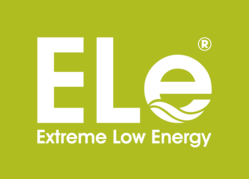Why ELe uses lithium-ion Phosphate batteries instead of lead acid batteries
In this week’s blog I will be explaining why Extreme Low Energy (ELe) uses lithium-ion Phosphate batteries instead of lead acid batteries. Lithium-ion has become the go-to chemistry for batteries and power storage needs around the world, from recreational vehicles to emergency power supplies. Lithium batteries are an extremely efficient way to harness the power of our closest star when used in Off-Grid installations. ELe takes advantage of renewable energy / solar power and uses it to recharge the batteries, so no grid Electricity is typically used up to recharge them. 

The pros of Lithium batteries are that they’re more beneficial for the consumer because they have a very high energy density, measured by both volume and weight. Energy density is the amount of energy stored in a given space per unit volume. This exceeds other cells (a “cell” is one energy source, a “battery” is a group of cells together as a single unit). As a result, designers and users get the best use out of them for example they’re lighter, smaller products with equivalent power and running time.
The advantages of lithium-ion Phosphate batteries instead of lead acid batteries are clear:
Environmental Impact: Lithium-ion batteries are a much cleaner technology and are safer for the environment. Which is a must for ELe when considering it’s manufacturing impact on the environment.
Weight: Lithium-ion batteries are one-third the weight of lead acid batteries.
Efficiency: Lithium-ion batteries are nearly 100% efficient in both charge and discharge. Allowing for the same amp hours both in and out. Lead acid batteries’ inefficiency leads to a loss of 15 amps while charging. Rapid discharging drops voltage quickly and reduces the batteries’ capacity. 

Discharge: Lithium-ion batteries are discharged 100% compared to less than 80% for lead acid. Most lead acid batteries do not recommend more than 50% depth of discharge.
Cycle Life: Rechargeable lithium-ion batteries cycle 5000 times or more compared to just 400-500 cycles in lead acid. Cycle life is greatly affected by higher levels of discharge in lead acid. Where as only slightly affected in lithium-ion batteries.
Voltage: Lithium-ion batteries maintain their voltage throughout the entire discharge cycle. This allows for greater and longer-lasting efficiency of Electrical components. Lead acid voltage drops consistently throughout the discharge cycle. The cons of lithium batteries are that they are more expensive to initially purchase than SLA batteries. Considering all the pros they are worth the money to ensure the best life span and performance.
Lead batteries:
These batteries are one of the oldest type of rechargeable battery and although they are inexpensive, people have many concerns about them for some of the following reasons.
Environmental Concerns: Lead acid batteries require many times more raw materials than a lithium-ion battery to achieve the same level of solar energy storage. More raw materials means more mining, and a bigger environmental impact. The lead acid battery industry is also very energy intensive, requiring a lot of energy to even produce the battery itself. This leads to large quantities of pollution being dumped into the air, and into the environment which goes against what ELe stands for therefore lithium-ion Phosphate batteries instead of lead acid batteries is a better option.
Corrosion Issue: Lead acid batteries are vulnerable to corrosion which frequently occurs either due to Electrolysis or overfilling. Corrosion may decrease batteries life time & must be avoided through proper maintenance. Acid Fumes: Lead batteries in some cases releases hydrogen gas. Gas can cause numerous health issues in terms of long-term exposure so these are not good to be installed in or around where people may occupy. As you can see the main disadvantages of Lead acid batteries are the dangers associated with them and so, even though the purchase cost is cheap it’s simply not worth installing them into the ELe systems.
We are often asked “How long do your lithium battery packs last?” as there is a lot of mistrust out there over battery technology so we recently commissioned Manchester University to conduct independent tests of our solution to verify the expected lifetime of the ELe energy storage systems. The 6 month UoM project concluded that our battery packs installed in schools and businesses and used 5 days a week will last over 14 years! This will be featured in depth in an upcoming blog and press release.
Tags In
Related Posts
Leave a Reply Cancel reply
Recent Posts
Latest Comments
- Alvario gordon on Electricity AC / DC – Made Simple
- SCOE on Top Tips to Save Energy in Schools
- Phoebe on Top Tips to Save Energy in Schools
- Andy Cameron on Top Tips to Save Energy in Schools
- Cindy Williams on Top Tips to Save Energy in Schools





